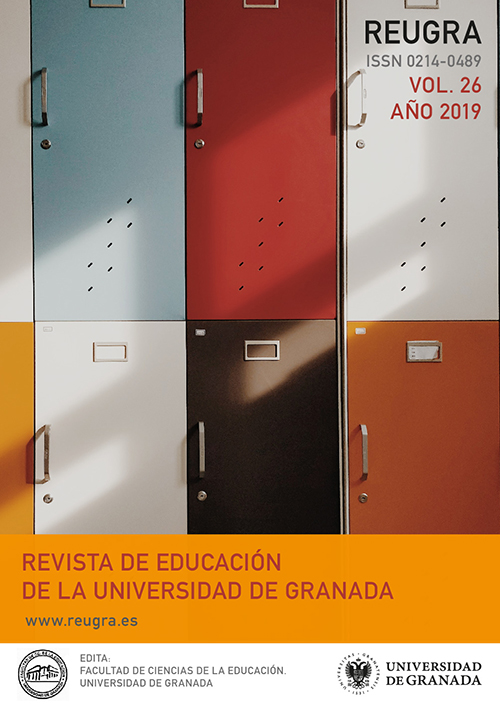Las competencias digitales del alumnado de Formación Profesional Básica
Contenido principal del artículo
Resumen
La competencia digital implica el uso creativo, crítico y seguro de las tecnologías de la información y la comunicación para un uso adaptado a la sociedad actual. La finalidad de la presente investigación es conocer las competencias digitales del alumnado que está matriculado en los ciclos formativos de Formación Profesional Básica (n=251). Se ha aplicado un método correlacional con análisis bivariable a toda la población de alumnos de Formación Profesional Básica de la Ciudad Autónoma de Ceuta (España). La recogida de datos se ha desarrollado mediante un cuestionario que ha sido validado mediante juicio de expertos y fiabilizado a través del coeficiente de consistencia interna Alfa de Cronbach. El análisis de datos se ha llevado a cabo mediante un análisis bivariado a través de tablas de contingencia para explorar las posibles asociaciones entre las distintas variables del estudio. Para saber si existen diferencias estadísticamente significativas primero se ha comprobado si los datos cumplían los supuestos de normalidad (Kolmogorov-Smirnov) y homocedasticidad (Prueba de Levene) para aplicar pruebas paramétricas. Al no cumplirse los supuestos se han aplicado métodos no paramétricos. Las pruebas no paramétricas aplicadas han sido U de Mann-Withney, al ser la variable de comparación, de tipo ordinal y Chi-cuadrado para la asociación de variables categóricas. Con la U de Mann-Whitney hemos medido la diferencia entre las distribuciones analizadas y con Chi-cuadrado, hemos comprobado la independencia (hipótesis nula) o la asociación (hipótesis alternativa). Los resultados demuestran que existen relación de significancia entre el uso de diversos dispositivos TIC (ordenador, Tablet o Smartphone) y recursos TIC, siendo la relación en la mayoría de los casos inversa. La conclusión principal que podemos obtener es que el alumnado de Formación Profesional Básica en la Ciudad Autónoma de Ceuta (España) tiene competencias digitales para un uso personal, donde lo usa con mucha frecuencia, pero no en el ámbito académico, donde apenas lo usa.



